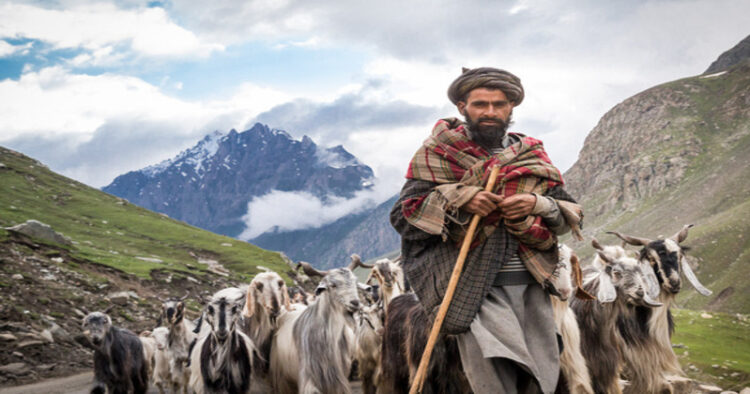New Delhi [India], August 1 (ANI): Article 370 of the Indian constitution that has abrogated in August 5, 2019, has ended the seven-decade-long discrimination faced by the tribal communities including Gujjar-Bakerwal and Gaddi-Sippi in Jammu and Kashmir and paved way for them to get equal rights in the country.
The members of the Gujjar-Bakerwal and Gaddi-Sippi communities, who were exploited to the hilt by the former rulers, stand completely empowered just three years after the revocation of the so-called special status of J&K.
Notably, many steps have been taken by the government to protect the interests of tribal people, including their land, education and upliftment of their socio-economic status during the past three years.
After the scrapping of Article 370 and J&K’s transition into a Union Territory, the government has worked hard to achieve a balanced development of infrastructure as well as human resources through a host of unprecedented policy decisions, schemes and programmes to implement the principle of equality.
Implementation of the Forest Rights Act (FRA) has ushered a new-era of empowerment and prosperity for the tribal population in ‘Naya Jammu and Kashmir.’
Apart from the Forest Rights Act, the administration has devised various schemes to protect the interests of tribal people, including their land, and attention is being paid to maintaining and preserving the forests.
Along with rights, the members of the tribal communities have been made aware of their responsibilities to protect the wildlife and the forests like their family members and maintain biodiversity.
‘Mission Youth’ and the Tribal Department are working together to establish sixteen milk villages to connect at least 2,000 youngsters to the dairy sector at the cost of Rs 16 crore, besides providing training, branding, marketing and transport facilities, as per media reports.
The members of tribal communities have been granted rights over minor forest produce. The government, in coordination with the Tribal Cooperative Marketing Development Federation of India Limited, has established infrastructure for collection, value addition, packaging, and distribution.
The government has embarked on the mission of developing transit accommodations at eight places at an estimated cost of Rs 28 crore for the seasonal transitory population. Tribal Bhavans are coming up in Jammu, Srinagar and Rajouri.
As many as 1521 seasonal schools for migratory children, two residential schools on the migratory route are coming up in J&K. Seven new hostels which were under construction for the youth of tribal community are almost complete and the UT administration has already proposed to the Centre to build 79 additional hostels, the media reports stated.
Meanwhile, tribal women are being provided with all possible assistance and help through centrally sponsored schemes to become financially independent and can earn their livelihoods with dignity in ‘Naya Jammu and Kashmir’ .
In June this year Tribal Affairs Department, IIT Jammu and Baba Ghulam Shah Badshah University Rajouri signed a Memorandum of Understanding to establish a Tribal Chair in both the institutes.
For the first time in 70-years, the government has appointed ASHA health workers from the tribal community to work for the health care of the population living in the high pasture region during the summer season.
Tele-medicine scheme has been launched to reach out to populations living in far flung areas with the services of specialist doctors.
In June, for the first time in the past 70 years members of the tribal community were felicitated during the maiden UT level Tribal Awards function held in Srinagar. The members were awarded for their exemplary services to tribal welfare and achievements in the field of sports, education, culture, literature and science and technology.
The abrogation of Article 370 has ended inequality between the members of tribal communities and the other denizens of Jammu and Kashmir. The tribals have got their rights in J&K for the first time after Independence. (ANI)




















Comments